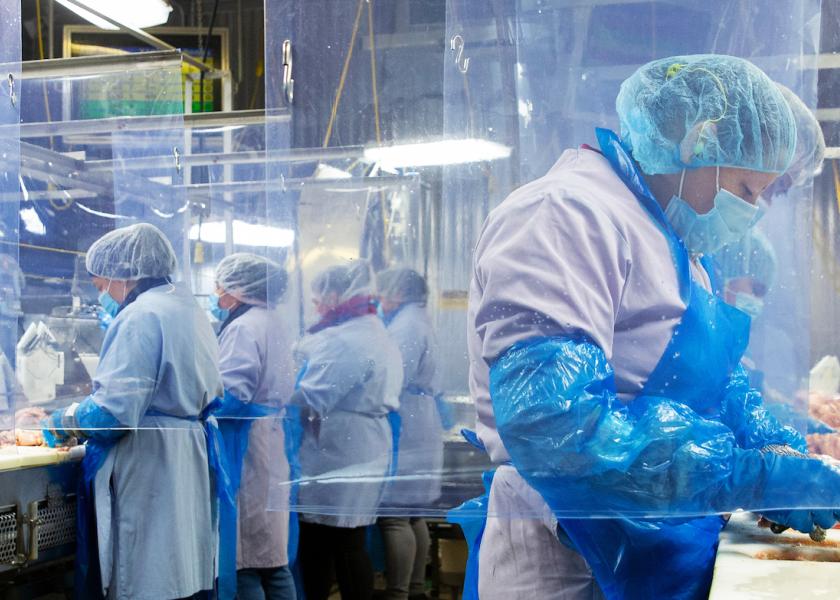Tyson Foods Raises Prices, Scrambles to Keep Up with Inflation

Tyson Foods Inc cannot increase prices for chicken and prepared foods fast enough to keep pace with rising costs for raw materials like grain, Chief Executive Donnie King said on Monday, after the company reported higher-than-expected quarterly earnings.
The meat company lifted its 2021 revenue forecast due to strong beef demand as sales of steaks and burgers from U.S. restaurants and hotels recovered following the easing of COVID-19 restrictions. U.S. beef exports are also robust.
But costs are also increasing, a potential drag on future earnings.
Tyson has increased prices for restaurant customers to offset inflation and plans to raise retail prices on Sept. 5, King said on a conference call with analysts. More increases are planned, he said.
"Costs are hitting us faster than we can get pricing at this point," King said.
Branded and value-added products are particularly affected by inflation, which reached 14% in the quarter ended on July 3, he said.
"We've seen unprecedented and accelerating inflation, and we're trying to catch up with that," King told reporters.
Tyson increased its average price for pork by 39.3% in the last quarter, while it raised beef and chicken prices 11.6% and 15.6% respectively. Sales volumes also increased.
Total quarterly sales climbed to $12.48 billion from $10.02 billion a year earlier, topping analysts' estimates for $11.49 billion.
Net income attributable to Tyson increased to $2.05 per share from $1.44 a year earlier. On an adjusted basis, Tyson earned $2.70 per share, crushing estimates of $1.62, according to IBES data from Refinitiv.
The Jimmy Dean hotdogs maker said it expects total sales of about $46 billion to $47 billion for fiscal 2021, compared with an earlier forecast of $44 billion to $46 billion.
The company, which is mandating COVID-19 vaccinations for U.S. employees, said rising coronavirus cases have made it harder to find workers. "We were on a good trajectory and then the Delta variant showed up," King said.
(Reporting by Praveen Paramasivam in Bengaluru and Tom Polansek in Chicago, Editing by Sherry Jacob-Phillips, Chizu Nomiyama and Steve Orlofsky)







